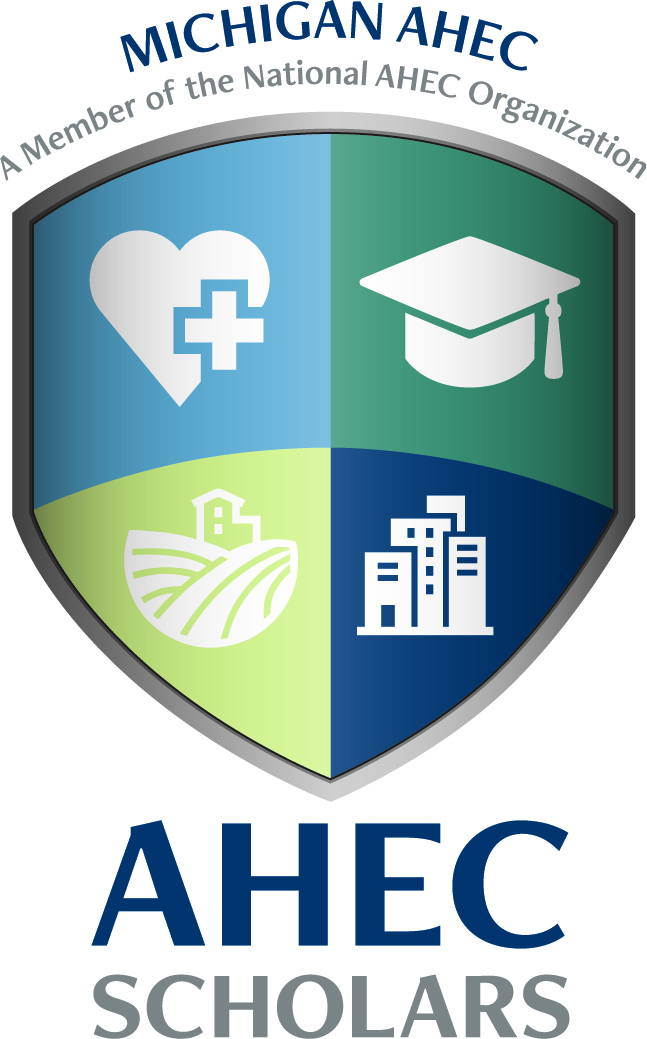Students


AHEC Scholars
The Michigan AHEC Scholars program is an advanced learning opportunity which supplements classroom instruction. It aims to  prepare students to enter the health professions workforce by teaching them important supplemental skills that might otherwise be missing from the student's normal academic curriculum.
prepare students to enter the health professions workforce by teaching them important supplemental skills that might otherwise be missing from the student's normal academic curriculum.
Selection for this program will be competitive with a formal application process. This selective program will allow students to network with other health professions students and to learn how to provide care in an interdisciplinary environment while exploring current and emerging topics in healthcare.
AHEC Scholars is designed specifically for applicants from a diverse background who have a strong interest in providing healthcare to patients in rural and medically underserved communities across Michigan.
Program Requirements
To successfully complete the AHEC Scholars Program, students will:
- Participate in the AHEC Scholars program for 2 years
- Complete 40 hours of experiential and 40 hours of didactic activities during each
of the two years of the program. Opportunities include:- Primary care focused interprofessional simulation activities
- Partnering with primary care leaders on quality improvement initiatives
- Fieldwork placements/rotations in team-based practice settings
- Access to online courses focused on the core topics
- Complete a follow-up evaluation 1 year after exiting the program.
Student Benefits
· Program Incentives
· Professional Networking Opportunity
· Competitive Resume Building
· Opportunity to work with other students across the state in urban and rural health environments
· AHEC Scholars Certificate gives national recognition of graduates as part of an elite group of future leaders in primary care
Core Topic Areas
Educational and training activities for AHEC Scholars will be team-based and will support the following topic areas:
Interprofessional Education
Supports a coordinated, patient-centered model of health care that involves an understanding of the contributions of multiple health care models.
Behavioral Health Integration
Promotes the development of integrated primary and behavioral health services to better address the needs of individuals with mental health and substance use conditions.
Social Determinants of Health
Includes economic stability, education, social and community context, health and health care and environment.
Cultural Competency
Training health care providers to recognize and address the unique culture, language and health literacy of diverse communities.
Practice Transformation
Targets the specific skills and competencies needed to prepare students and health professionals to effectively practice in a transforming health care system.
Current and Emerging Health Issues
Geographically relevant health issues such as opioid abuse, trauma informed care, etc.
For More Information
E-mail: AHECScholars@wayne.edu
Phone: 313-577-5161